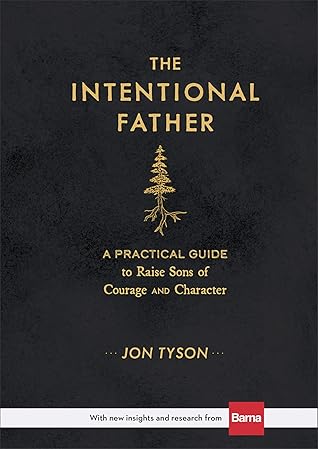More on this book
Community
Kindle Notes & Highlights
by
Jon Tyson
Read between
August 22 - September 14, 2021
When a father is present, emotionally healthy, and involved in his child’s life, the child has a tremendous advantage in the world to navigate its complexities and challenges with joy and confidence.
But healthy masculinity does none of those things. True masculinity has the strength to smash hierarchies, stand up for those on the margins, and lead men into lives where they are stopping abuse from happening.
When there’s no older generation intentionally ushering boys into manhood, when there’s no tribe of mentors or fathers taking their sons along a predetermined path, many of our young men try to establish themselves, attempting to walk through the wilderness of adolescence with the hope that, somehow, they’ll find their way into adulthood on their own.
Young men, while attempting to self-initiate their way into manhood, are actually carrying their adolescence into adulthood.
Boys do not long for fathers who will usher them through the gauntlet of psychological disconnect. They long for fathers who have themselves survived intact. Boys do not ache for their father’s masculinity. They ache for their fathers’ hearts. T-REAL
Then there is the ignorant father. This type of father has no idea what he’s doing and continually wreaks havoc in the lives of his children without even realizing it. He doesn’t know anything about being a father, and he doesn’t try to learn or improve. Because of all of this, he ends up projecting his own brokenness into the lives of his children.
This is an important distinction, as an irresponsible father is likely unable to be reached as they’re absent, but an ignorant father could have their eyes opened, and change
The intentional father is deeply invested in discovering who his children are and how he can help them reach their redemptive potential. He seeks to understand the children God has given him and wants to form them into young persons who can fulfill their purpose. He sees parenting as central to his call before God and does it with all of his might. This kind of father leaves multigenerational blessing in the lives of his children.
we will be operating between two guardrails, two things I think are crucial to keep in mind during the entire journey of being an intentional father: submission and servanthood.
Adam, the first man, failed in his responsibilities with God and others because of two things. The first was rebellion and the second was laziness. He wanted to go his own way, and when that didn’t work out, he refused to accept responsibility. I want to see godly men operating with authority and responsibility, living for the glory of God and the good of others and submitting to God and serving others.
No effort of love, discipleship, and development will ever be wasted in the life of your son, regardless of who he is or what he is wrestling with.
I guess at some point we all have this realization about our fathers, that they didn’t quite have the tools they needed to propel us into manhood.
“If we do not transform our pain, we will most assuredly transmit it.”2
There has to be a moment when you draw a line in the sand and determine you aren’t going to let the pain you experienced be transferred into the life of your own son.
It is important that young men get a sense of a larger story and tradition, so they have some context for living well and break the delusion that the world revolves around them.
And remember, these aren’t just generic manhood shifts—these are the shifts that help our sons become more like Jesus Christ. Jesus left the ease of heaven to embrace the difficulty of earth and of the cross; Jesus humbled and emptied himself, and he lived for others, not just himself; Jesus moved into a life of obscurity for us; Jesus surrendered, not trying to remain in control of his situation; and Jesus lived for eternal rewards, not temporary reality.
The pushback generally levels that the reason Christian men’s movements are largely cliché or ineffective is that they are usually all about being a good man. A good man—what comes to mind when you think of a that? Often it’s someone in baggy khaki pants and unpolished shoes with a tucked-in polo shirt that doesn’t fit properly. He spends his life wrestling with insecurities and trying not to do bad things.
Christianity hasn’t done a good job of raising up men we can look at and think, Now, that’s a good man. That’s what a good man is, and it’s amazing. Few of us, when thinking of a good man, think of the wildness or passion of Jesus Christ—and if we do think of Jesus, it’s because we’ve reduced him to an overwhelmed suburban dad who doesn’t have time in his schedule and is always flushed and struggling rather than living with freedom, power, and authority.
Confidence comes from competence.
IMAGINE A FARMER walked down a backcountry road and saw another farmer repairing a fence. His young sons were helping him. “Why are you letting your sons help you?” the first farmer asked. “It’s going to take five times as long. You should just do it yourself.” “Oh, but you’ve made a mistake,” the second farmer said. “You think I’m repairing a fence. I’m not. I’m raising my sons.”
Being a father is not about efficiency; it’s about discipleship. Being a father is not about time management; it’s about heart development.
The same could be said of Jesus’s life—he knew he had his Father’s blessing from the very beginning, which meant he was free from the tyranny of seeking applause.


